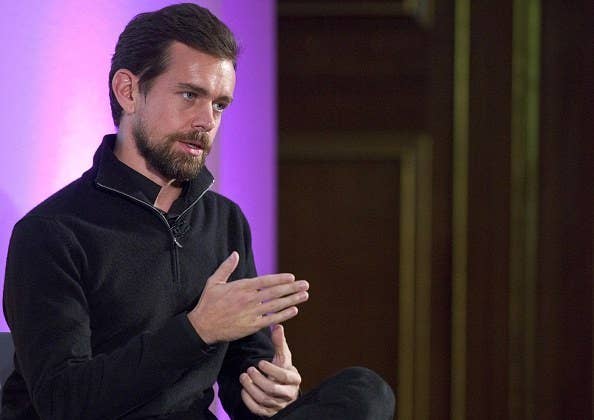
Square, the payments and small business software company founded by Twitter co-founder Jack Dorsey, is finally going public. The company filed its S-1 with the U.S. Securities and Exchange Commission (SEC) on Wednesday after market close. Square's shares will trade on the New York Stock Exchange under the ticker symbol SQ. The company says it hopes to raise $275 million -- though that number could easily change as the offering nears completion.
"As a public company our decisions will continue to reflect what we’ve done as a private one—we put our customers first," Dorsey wrote in a founder's letter. "That means constantly asking the question: how can the financial system better serve people? We’ll measure ourselves by our commitment to take the long view and focus on building a company that creates value over decades and not just a few fiscal quarters out."
Square's IPO announcement follows Dorsey's recent appointment as permanent CEO of Twitter. And his decision to lead both Twitter and Square is already raising questions about how he'll manage the difficult business of refocusing the former while promoting the IPO of the latter.
Square's S-1 notes the conflict, saying, "Jack Dorsey, our co-founder, President, and Chief Executive Officer, also serves as Chief Executive Officer of Twitter. This may at times adversely affect his ability to devote time, attention, and effort to Square."
Square said that it has had a net loss in each of the last three years, while its revenue has gone from $203 million in 2012 to over $850 million in 2014. Through the first six months of this year it had $561 million in revenue.
Goldman, Sachs & Co., Morgan Stanley, and JPMorgan are managing Square's offering -- the same underwriters that handled Twitter's IPO in 2013.
Below, Dorsey's founder's letter:
A NOTE FROM JACK
We started Square because Jim McKelvey, our co-founder and my second boss (after my mother!), couldn’t accept a credit card for his art.
Setting up a merchant account was painful. The application process required lots of paperwork and took months. Banks asked for multiple credit checks and years of financial history. And when we were finally approved to accept cards, we couldn’t decipher the rates we were paying. Then our first deposit was held. The entire process was exclusionary and unfair.
Square was born out of our experience. We built a working prototype: a mobile credit card reader that plugged into the audio jack of an iPhone and an app to enter an amount and process the payment. But it took us a year to convince the financial industry to allow us to make Square broadly available. The problem was not with the technology, but with the system.
We decided to make the entire system faster, more affordable, and more accessible. We gave the card reader and software away for free. We settled funds next business morning, which required us to advance money to sellers faster than we received it. We abstracted away the byzantine maze of interchange pricing to offer a simple fixed rate per swipe, which forced us to find ways to lower our costs immediately. Every one of those decisions carried existential risks that we trusted we’d be able to overcome with time. And we have!
Creating more inclusion and greater equality in the global economy is both a social need and a huge business opportunity. We’ve made it our purpose: empower people with beautifully simple tools that give them an advantage where they previously and unfairly had none. Our strategy to realize that purpose is straightforward: grow our payments service, extend payments into financial services, and extend payments into marketing services.
We’ve built one of the fairest and most efficient payments businesses in the world. We made it possible to accept card payments in less than five minutes. We priced all payment cards at the same flat rate and eliminated complicated fees. With Square Cash we’ve built a network that works for both individuals and businesses, online and offline. We believe sellers should be able to accept any type of payment, from cash to cards, Apple Pay to bitcoin, and whatever the future may bring, so they never miss a sale.
The strength of this business is more than the money it generates. The collective power of our millions of sellers sustains a scale from which we can build valuable financial services and marketing services, creating reinforcing and virtuous cycles back to our core business of payments. We’ve made getting capital as easy as tapping a button. We replaced pen and paper accounting with real-time insights into sales patterns and customer trends. Everything works together seamlessly to help our sellers make smart decisions for their businesses. When they succeed, we succeed.
By making our services accessible to everyone, we can build a more fair and productive system that serves instead of rules. This is both good for Square and the right thing to do. We’re off to a strong start.
As a public company our decisions will continue to reflect what we’ve done as a private one—we put our customers first. That means constantly asking the question: how can the financial system better serve people? We’ll measure ourselves by our commitment to take the long view and focus on building a company that creates value over decades and not just a few fiscal quarters out.
